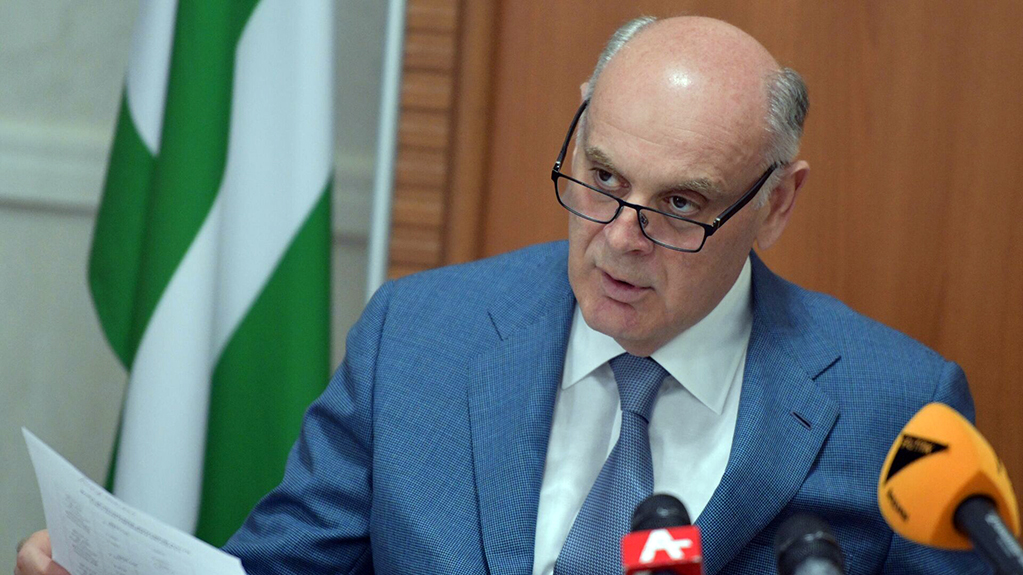The de facto President of the occupied Abkhazia, Aslan Bzhania, introduced a draft law on “non-profit organizations and individuals acting as foreign agents” to the parliament. The draft law aims to limit the activities of non-governmental organizations. Discussions on the adoption of such legislation started 2 years ago.
News
According to the draft law presented by Bzhania on February 7, non-profit organizations and individuals can be recognized as foreign agents if they receive money and/or other property from foreign sources and participate in political activities on the territory of Abkhazia.
“The adoption of the draft law will contribute to the protection of the interests of the Republic of Abkhazia and its security, sovereignty, rights, and freedoms of citizens. It also ensures an immediate response to foreign interference in the political activities of the state and society of Abkhazia,” states the explanatory note of the draft law.
The following are considered foreign sources: 1) Foreign states; 2) Bodies of a foreign state, local government bodies; 3) International and foreign organizations, and their structural divisions; 4) Citizens of foreign countries; 5) Persons without citizenship; 6) Foreign structures without forming a legal entity; 7) Persons financed by the listed sources.
The basis for being recognized as a “foreign agent” is not receiving funding from a country that has recognized the independence of Abkhazia. Currently, such countries are Russia, Venezuela, Nicaragua, Nauru, and Syria.
Organizations and individuals will be granted the status of “foreign agent” after being entered into the relevant register by the so-called Ministry of Justice.
According to the draft law, individuals with the status of “foreign agents” will be restricted from participating in election processes, will not be able to participate in the activities of commissions, committees, advisory, or other bodies created by state agencies, and will not have the right to hold public events such as rallies, demonstrations, marches, public debates, and discussions.
Additionally, “foreign agents” will be prohibited from engaging in educational and/or pedagogical activities in republican and municipal educational organizations, receiving state funding, etc. Materials produced and/or distributed by “foreign agents” must bear an indication that they were produced, distributed, and/or sent by a person acting as a foreign agent, or related to the activities of such a person.
Violation of the law will lead to administrative and criminal liability.
In December 2021, a memorandum of cooperation was signed between the Ministries of Justice of Russia and the de facto Abkhazia on issues related to the legal regulation of the activities of non-commercial organizations. The potential adoption of the law on “foreign agents” was met with protests by civil activists.
In January 2022, 352 people signed an appeal to the president, stating that the category of “foreign agent” is a false and propagandistic cliché and that such a law would be a repressive tool.
“We believe that the adoption of such a law in the future, even in its “lightest” version, will undoubtedly lead to the dismantling of the non-governmental sector, as the employees of civil organizations - patriots of their country - will not be able to endure even a single day under the stigmatizing label of a foreign agent,” opponents of the law said.
It was also mentioned in the appeal that such a law would damage the image of Abkhazia at the international level.
In Russia, the concept of “foreign agent” concerning non-governmental organizations appeared in the law in 2012. Currently, this status is given to citizens, local and international non-profit organizations, and media outlets critical of the government.
In March 2023, the draft law “on agents of foreign influence” was registered in the Parliament of Georgia, and “Georgian Dream” accepted it in the first reading. As a result of protests and international pressure, the ruling party withdrew the draft law.















